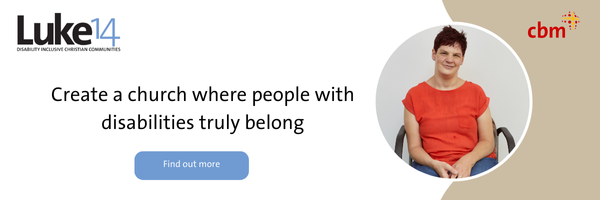
A Mother’s Call for Change
I call mental illness the invisible disability because so often, in churches, we don’t realise how many people are silently struggling. People might show up on Sunday, shake hands, smile, and even sing the worship songs. But behind their happy mask, they’re battling anxiety, depression, or other mental health conditions.
By Emily, Melbourne
Creating churches that embrace Neurodiversity
As a mum of three kids, who has been going to church my whole life, I want to share something that’s been weighing on my heart.
When my eldest son was diagnosed with ADHD in Grade 2, I felt a deep sense of uncertainty and isolation. His struggles, which often manifested in behavioural issues, were more related to his ability to focus than to any intentional misbehaving. He once explained it to me in a way I’ll never forget:
“It’s like a helicopter in my brain, Mum, and all the thoughts are the rotor, spinning round and round.”
At the time of my son’s diagnosis, I didn’t feel like I could talk about it with anyone at church. I knew other mums who were facing similar challenges, but no one really talked about it.
Church had always been a place where my son felt comfortable when he was younger. The kids' programs gave him the freedom to run around, play games, and engage with others in a way that worked for him. But as he hit his teenage years, things changed. The expectation to sit still and listen during the church service was almost impossible for him, and worship was difficult.
Our church services tend to be loud and full of sensory stimulation, and for someone with ADHD, this can be overwhelming. Focusing when there’s so much external noise is a real challenge, and on some Sundays, we’d arrive late to avoid the worship part of the service, simply because it was too much for my son. I know that skipping parts of the service affected the rest of the family, but it was a way to help him cope.
Almost an adult now, my son attends church less often and when he does, he doesn’t enjoy it. He’s uncomfortable having to sit still for long periods and struggles with the sensory overload that often comes with the experience. It breaks my heart because I know how much he wants to connect with God—but the structure of church doesn’t make it easy for him to do so.
I can’t help but feel let down by the church at times. I wish there was more done to include people who are neurodiverse. The church often sticks to the same “one-size-fits-all” structure week after week, year after year, with little thought as to whether it works for everyone. But I believe it’s time for that to change.
We need to start asking: How do we create churches where everyone feels welcome? How can we make it possible for people with ADHD, and other neurodivergences, to worship God in their own way, without feeling like they don’t belong?
If I could offer one piece of advice to church leaders and congregations, it would be to become more curious about how to create inclusive spaces. Take time to ask adults with ADHD what they find confronting in a church service. Talk to families who live with ADHD daily. Understand what it’s like for them and then find ways to make church more accessible. For example, offering a space where someone can reset after worship if needed could make a big difference.
One thing I’ve learned as a mother is that if your child is a square peg, there’s no use trying to make them fit a round hole. Rather than trying to make neurodiverse people adjust to way we’ve always done church services; we could also adjust our approach. We need to ask ourselves: How can we make church a place where everyone can feel like they belong?
There’s beauty in diversity, in embracing everyone’s unique way of connecting with God. Let's not settle for simply trying to fit people into a formula we’ve followed for decades. Let’s create churches where everyone, whether they’re neurodiverse or not, can truly thrive and worship without feeling like they don’t belong.
If we can do this, we can build a church that reflects God’s love for all His children—every single one of them. CBM Australia has created free video training modules to help you create churches and Christian communities where people with disabilities and neurodivergence can fully belong. Find out more at www.cbm.org.au/luke14

